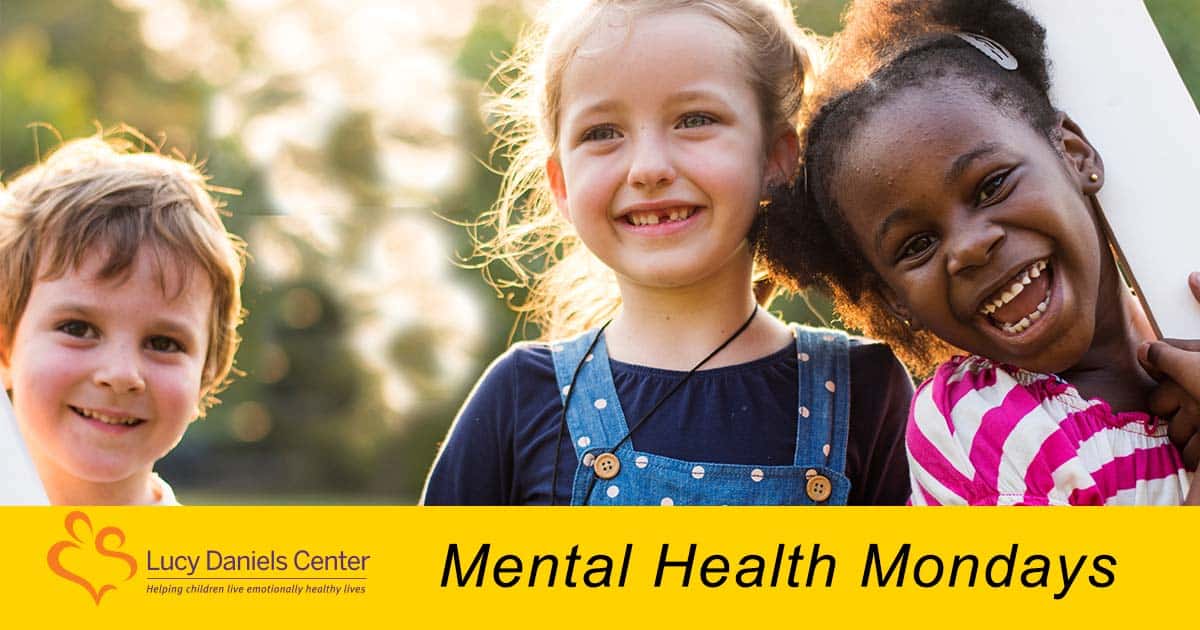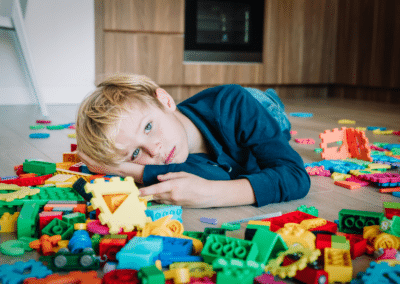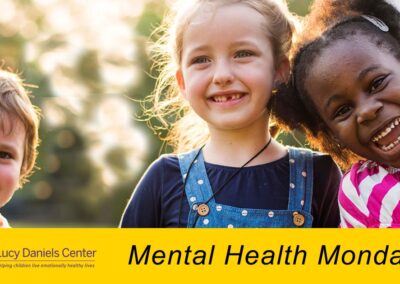Mental Health Mondays
Supporting Your Child’s Relationships in School
Parents have many opportunities to support their children’s relationships in the earliest years of life. You meet with friends and neighbors who have children of the same age, your children play together, and all goes well (for the most part!) under your watchful eye and attentive care. You are there to mediate conflicts and ensure fairness. You help your child communicate his or her feelings when situations become overwhelming, stepping in when necessary on behalf of your child. You are comfortable with the way things are because, after all, these are play relationships that you have chosen for your child.
What happens when children enter school and begin to forge relationships with their peers, many of whom you know very little about? How can you support this step in your child’s development and ensure that she is developing healthy relationships? To answer these questions, we will explore the role parents play in supporting this development in their children.
In the preschool years, parents are able to be at least somewhat involved in the daily goings on in their child’s classroom, even if only at the beginning or end of the school day. These glimpses into the classroom, however brief, provide parents with a sense of who’s who in their child’s class. Parents are often familiar with their child’s preschool playmates, and because of the close-knit nature of many preschool communities, play dates in the neighborhood or at the local playground allow parents to stay in touch while their children play alongside each other.
Once children enter elementary school, however, the school day and the homework that follows fill most of the day, limiting opportunities to be a part of your child’s relationships with peers. Therefore, many of the experiences with peers take place almost exclusively at school. At the same time, elementary school teachers focus primarily on academics and play a smaller role in facilitating relationships in the classroom. This means that children of this age are often on their own when it comes to forming and sustaining friendships and negotiating conflicts with their peers.
Peer Relationships as a Gradual Developmental Task
Are children really on their own with this task once they enter elementary school? The short answer is not completely. In previous articles, we have discussed how autonomy emerges and grows over time. No one developmental task magically appears in mature form overnight! In our column last month on helping children with homework, we used the example of getting dressed to illustrate the emergence of developmental tasks. Most tasks begin with your full support and are gradually taken over when your child is ready. It is no different with the development of peer relationships, although the complexity of human relationships lends itself to a much longer process. While you were the main facilitator of peer relationships in your child’s earliest years of life, your support and guidance will take place in different forms and with gradually decreasing involvement on your part over time.
Keep Conversations about Peers Open and Ongoing
As your child grows and changes, so will your role in supporting relationships with peers. Conversations about friends and the joys and conflicts that inevitably come and go in relationships begin long before your child enters elementary school. Beginning this dialogue early on will help you develop a frame of reference for helping your child think through conflicts and worries that arise in his or her peer relationships. By the time your child enters elementary school, you will ideally have a sense of what your child looks for in a playmate and how he or she tends to handle conflicts (some children outwardly express feelings of anger and frustration, while others quietly withdraw to avoid conflict). As time goes on, you will, of course, have less control over your child’s choice of friends. However, keeping the conversation about feelings and relationships going will ensure that she has someone she trusts to help think things through. Your guidance in putting words to feelings and understanding conflicts will help your child learn to comfortably communicate a range of feelings to peers and, over time, independently engage in healthy relationships of all types.
Lucy Daniels School is an emotionally safe and supportive learning environment for children preschool-5th grade. Lucy Daniels School provides an alternative choice in our therapeutic school for children who struggle emotionally and academically in a mainstream school environment. At the Lucy Daniels School, each child’s education and therapeutic program is carefully tailored to his or her needs and strengths. Parents meet regularly with a parent guidance counselor. This collaborative approach helps children progress socially and academically to become successful and competent learners.



